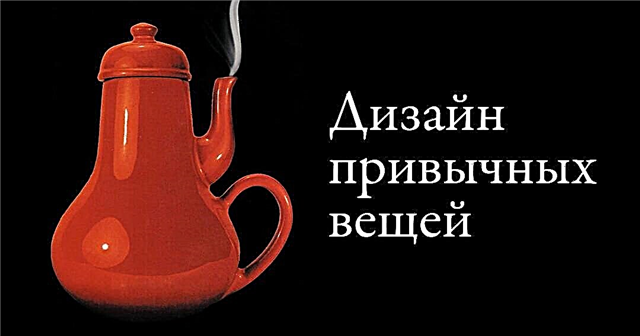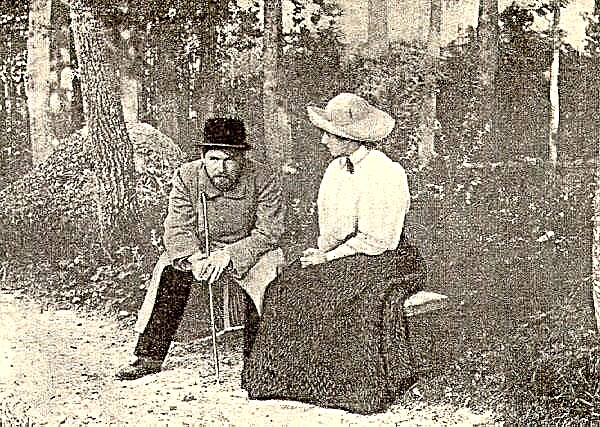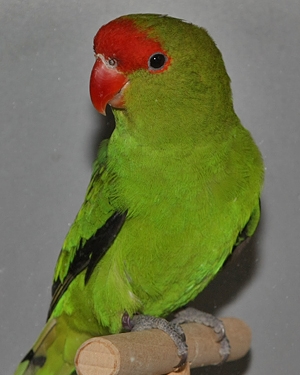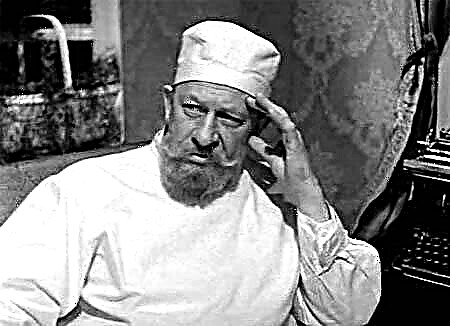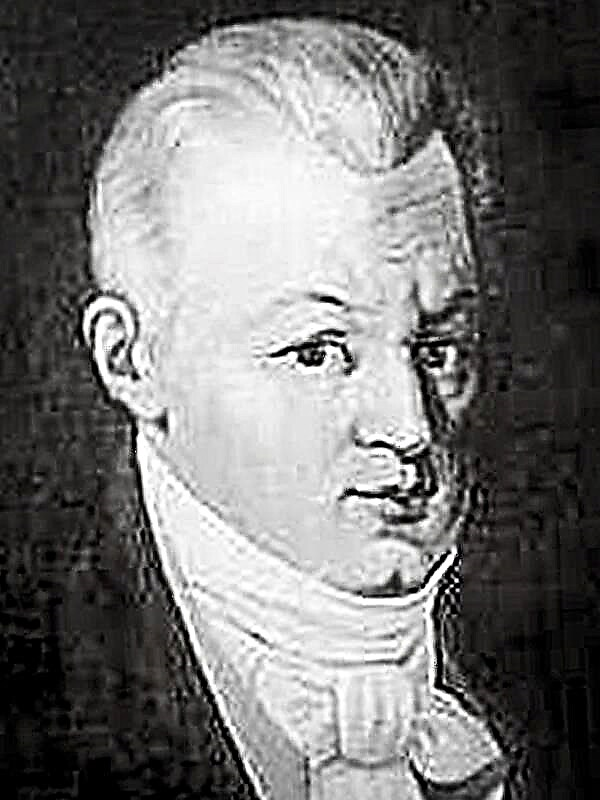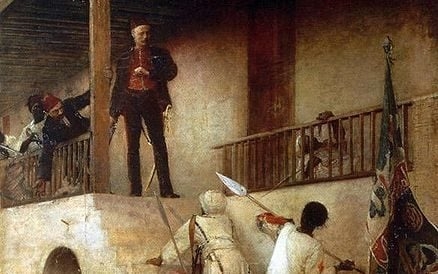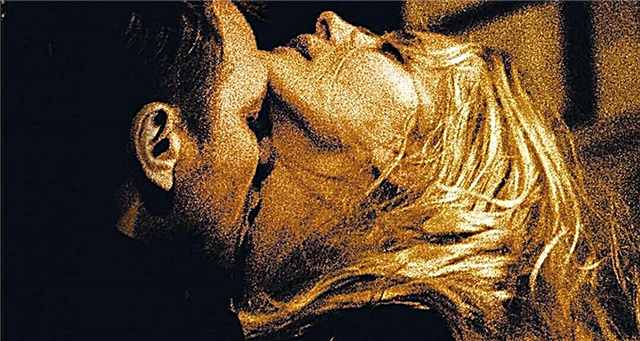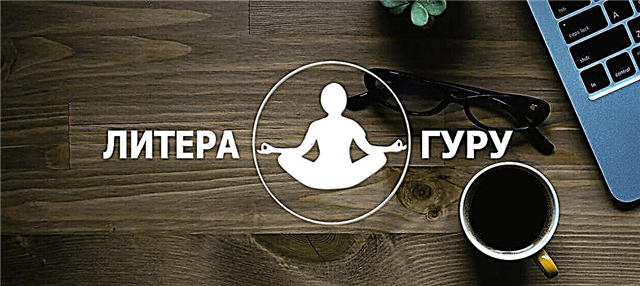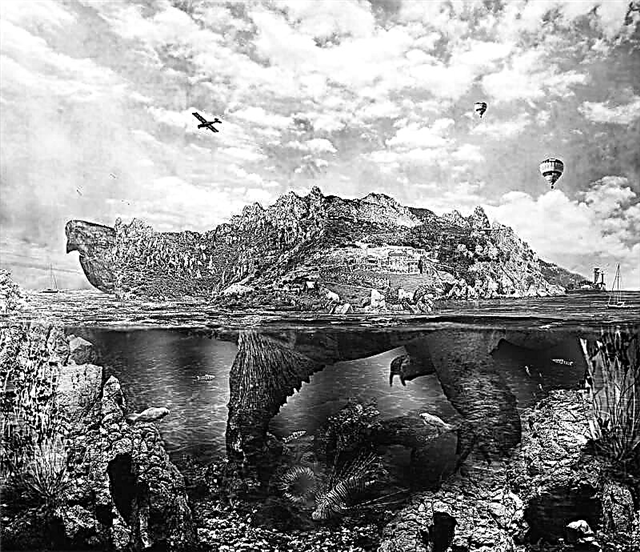Writers, artists, musicians lived in this house of Elizabethan times and almost Biron. However, there lived servants, and tailors, and workers, and a former servant ... That was later, and not only in the border with the NEP and the first NEP years.
Life was simplified to pristine, and life took on a fantastic shape. It already seemed to the inhabitants that this house was not a house at all, but a ship rushing somewhere.
Slightly warm stove-potbelly stoves, partitions, dividing once tasteless luxurious halls into cells, all testified that there were no ordinary everyday life, that accepted norms of relationships had receded into the past, the familiar hierarchy of values had changed.
However, as vineyards splendidly grow on the edge of a volcano, people bloomed here with their best color. All were heroes, creators. New forms of the public were created, entire schools, books were written. In everyday life, boots were born from ombre cloth, blouses from furniture covers, dried carrots turned into tea, and roach - into a two-course lunch.
So, this was a place where, at every step, the elementary, commonplace was adjacent to the elite. In the morning, passing by the washbasins, a person could be stopped with a shout: "Hey, listen ... Let's talk about the Logos." This was shouted by a brushing tooth, Akovich (A. L. Volynsky), an amazing scholar, ready to polemicize with a representative of the old intelligentsia, and with the former servants, who scattered in the kitchen around a still warm stove. The former loved Akovich for the complexity of his inner world, the latter for their "simplicity", accessibility: "Although he is a Jew, but, as the apostles, he is Russian."
the fireworks of thought exploded noisy and generous in wasting creative forces Zhukanets (V. B. Shklovsky), in whose head - a good volume - the "Chinese method" in literary criticism (formal method) was born, which absolutized the "method". Both the author, and the writer Doliva, and the “everyday educator” Sohatom (all three are different faces of O. D. Forsh) were close to the life attitude of Zhukants, busy sculpting a new man, although everyone saw this path in their own way. The author strove for feasible "blasting of the border posts of time." Doliva was convinced that if one doesn’t enrich a person internally, he will leak through his fingers, will not take place as an organized person and will secretly depend on the beast in himself. Sukhaty “taught creativity” to novice writers who believed that after reading and “sorting” a dozen masterpieces, they would write the eleventh themselves. He offered to work, asked exercises like a task to describe the monument to Peter in five lines, seeing him, say, through the eyes of a friend or girlfriend living in China. Only one cadet met this volume: “... In China ... I don’t have girls, but to the registry office ... I’m going with Sanya from the Red Triangle. As she saw the monument perfectly, there is nothing to smear ... "
Sokhatom, however, was promised a place somewhere and something in charge of. Panna Vanda, one of the sister owners of Varshavyanka cafe, only under this bill makes advances to the “home educator” in the form of smiles and hazy words that give rise to vague hopes. But the sisters disappeared overnight, and the author met them years later in Italy, engaged in something like the most famous and oldest profession.
Zhukanets consoled a friend: according to his “scheme of a new person”, the individual will be completely deprived of the balance of personal principles and, free, will burst into flames with all the possibilities of his intellect. He drove him to Gaetan's poetic evening, which turned out to be the last. "Love ended with him ... This page is closed with him forever." The drooping Sohaty continued his research in the sphere of "everyday life and tale", in one of Lenin's clubs he read Russian literature for half a pound of bread and one candy, flying on the Crazy Ship to an unknown future, sometimes rejoicing to see and hear his amazing team and passengers. Alien Gastroler (A. Bely) with his “Novel of Results”; Mikula, an almost brilliant poet from the same sources as Rasputin; Yeruslan (M. Gorky), who defended “them” before “us”, and “us” before “them” - this is from the “old” ones.
And the poetess Elan (N.P. Pavlovich), who claimed that she was "the last snow mask"; Roerich’s student, artist Kotikhina; universal favorite, improviser-entertainer and organizer of various kinds of drawings, skits Genya Chorn (Evgeny Schwartz) - from the "new". The young man of the Faun, whose name was simply Vova (L. Lunts), whose mighty run was stopped only by early death, did not have time, however, to prevent him from throwing off the banner, under which the amazingly gifted youth gathered: “brother Aleut” (Vs. Ivanov) - spicy creator and fragrant prose; Kopilsky (M. Slonimsky), in the pencil box room of which the fraternal union of poets and writers was born, who believed that "art is real, like life itself"; the poet, who turned out to be the founder of the new lyricism (Nik. Tikhonov); a woman poet (not a poetess, not a sister, but a full brother - Z. Polonskaya) - all of them connected two eras together, not betraying art. Yeruslan was very attentive to these young people, appreciated and supported them. After all, through himself he connected the past culture with the culture of the future. He came as a worker and an intellectual, and their meeting in his person took place without mutual extermination.
The crazy ship completed its voyage almost two years after the Kronstadt events, having done, perhaps for Russian literature, more than any specially created creative association of writers and poets.

